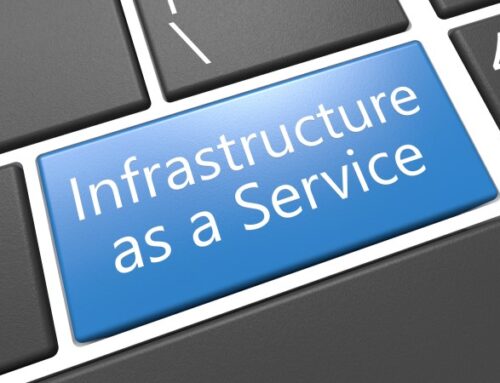Remote work is part of everyday life for an increasing number of employees. They write an e-mail in a café, read an annual report in the park or take part in a video meeting in a hotel room. Remote work brings the office to any place in the world. What is remote work? What are the basics of this form of new work? Which industries benefit from this work model? In this article we look at the advantages and disadvantages. Get tips about working remotely.
What does remote working mean?
Remote can be translated from English with the German word “fern”. That is why we also speak of remote-work. This is an activity in which employees are not present in the office. Instead, they work anywhere outside the company or at home. The same applies to personal participation in meetings. Here, online conferencing at the computer replaces the usual meeting with the team. Employees’ desks are usually located in their own homes, on trains or in public places. Contact with colleagues is made digitally via e-mail, video calls or telephone.
In an international Delphi study, the Bertelsmann Foundation has looked ahead to the “future of work” in 2050. Companies must adapt to more flexible working environments. From now on, self-determined jobs, digital communication, online meetings and virtual offices will shape our working world even more than before.
Generations Y and Z now want to work freely and flexibly. Round-the-clock Internet surfing and networked contacts in social communities will shape the employees of the future. It is therefore not surprising that mobile working in the home office is becoming increasingly popular. The corona crisis seems to accelerate the trend even more.
Basics for successful Remote Work
The basis for Remote Work is the technical equipment. With a laptop the employee can carry out his tasks remotely. A fast Internet connection proves to be an advantage. In addition, there is the software for graphic and web designers or the CAD system for engineers. They only do their job from any location if the programs are installed and work without problems.
In addition, remote workers need various tools to exchange data with colleagues and communicate with them. These include e-mail software, content management systems, tools for collaborative teamwork, platforms for project management and access to the intranet. To ensure that data is transferred and stored securely between employees, the programs must meet certain conditions. As is generally known, companies are obliged to comply with numerous guidelines, compliance requirements as well as DSGVO and GoBD specifications.
To ensure that this premise is fulfilled, documents and e-mails are sent securely using encryption. Cloud services such as TeamDrive with end-to-end encryption and automatic data synchronization are therefore suitable for collaboration. In this way, all the files that are worked on together in the team are always kept up to date. The encrypted transmission of large file attachments across national borders is also indispensable for internationally active companies.
Many companies have conventional VPN access. The administration is often very complex, especially when many external people are involved in a project. However, there is another way: with TeamDrive, employees are given secure and encrypted access to files. Remote teams can thus work together conveniently and on the move without a VPN. In addition to access to the company network, it is important for remote employees to communicate with their colleagues. This only works if the connection to the Internet remains stable and the video software works perfectly. Then the online conference replaces the team meeting in the office equally well.
In which industries are location-independent jobs useful?
Often digital nomads work in a remote job. They work at a different location every day, using either co-working spaces, home office or the nearby café. Employers from a wide range of industries are increasingly positive about the experience and encourage remote working. Remote work is not a new topic or modern concept. Regionally active employees in sales or representatives in the field have been working remotely for years.
We have compiled a list of industries in which remote work is feasible:
- Financial sector
- Insurance
- Real Estate
- IT
- Administration
- Marketing
- Design
- Advice
- Public Health
Advantages and disadvantages of remote work
Remote jobs have advantages and disadvantages. The overview summarizes strengths and hurdles in a compact way.
Advantages:
- high efficiency
- an individual working environment reduces stress
- Basis for a healthy work-life balance
- short or no commute necessary
- family-friendly jobs
- Satisfaction through high flexibility
- Costs for office rents are reduced due to fewer jobs
- Protection of the environment
Disadvantages:
- possible loneliness due to lack of personal contact
- distracting environment
- Career disadvantages due to absence
- few controls for supervisors
- WLAN problems and technical difficulties
- different time zones slow down the implementation of projects
- difficult separation of private and professional life
Tips for working from any location
For remote work, there are a few points to remember to be efficient and successful. Make sure that your computer connects to the Internet in a stable way. Set up mobile access if no WLAN is available. Alternatively, organize your personal tasks so that you can work offline for a while. Since a power outlet is not always within reach, a full laptop battery is a good idea.
Find places for the job that offer little distraction or noise. Traffic noise, loud voices and wind disturb phone calls and video meetings with colleagues. We therefore recommend using a digital mailbox. With it you can forward folders easily and securely to clients and project partners.
If the employer allows you to work in the home office or wherever you are, this is not initially a carte blanche for secret relaxation. Rather, task lists and a fixed work rhythm are needed to create the daily workload. Evaluating tables, filling the washing machine in between, going to a restaurant for lunch and sending e-mails at the same time? Sounds efficient, but it causes stress. Be sure to separate professional and private sections. Experience has shown that remote workers find it difficult to separate work and leisure time over time.
Think about data security in the same way. Protect yourself from data loss through viruses or ransomware. Make regular backups. That way you will avoid trouble if hardware is stolen or damaged. We recommend Point in Time Recovery as the technology for this. Use snapshots to back up data and restore it quickly in the event of a failure.
Working remotely with TeamDrive
Are you looking for a suitable solution for the collaboration of virtual teams? Are you interested in secure remote working? Then please contact us. TeamDrive supports companies from large corporations to medium-sized businesses in setting up remote workstations properly.




